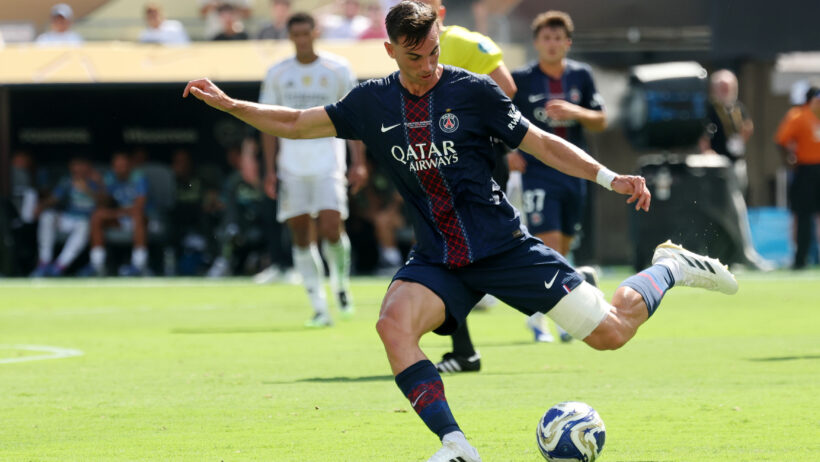Oscar’s Grind Betting System Tries to Capitalize on Winning Streaks
By Sascha Paruk
Updated:

“Oscar’s Grind” is the nickname given to a betting system popularized by Allan Wilson in the mid-1960s. It is almost exclusively applied to even-money binary propositions, like the flip of a coin or, in the context of sports betting, covering the spread.
It’s like the D’Alembert System, to some extent, but whereas D’Alembert increases bet size after a loss, Oscar’s Grind aims to capitalize on winning streaks by increasing bet size after a win (while waiting out losing streaks).
Below, we explain how Oscar’s Grind operates and why it doesn’t actually work in real life.
How Does Oscar’s Grind Betting Strategy Operate?
Oscar’s Grind divides betting into “sessions” and “units.” Every session begins with a one-unit bet and ends when the bettor has achieved a one-unit profit. It’s mostly connected to sports betting, but is also used by some while playing table games like roulette.
For most people, using actual dollar amounts makes it easier to understand.
Pretend that your “unit” is $100. Each of your sessions will start with a $100 bet. It will end only when you have a $100 profit.
For mathematical ease, pretend that there is no juice when betting against the spread (“ATS”), and that winning a $100 ATS bet will result in a $100 profit. (In reality, it results in a $90.91 profit with the standard -110 odds in effect.)
In the event that you win your first bet of $100, you have achieved the sought-after $100 profit and a new session starts.
In the event that you lose your first $100 bet, Oscar’s Grind dictates that you continue to bet $100 (a.k.a. one unit) until you win a wager. When you (eventually) win a wager, the bet size doubles to $200. This is the main difference between the Oscar’s Grind betting strategy vs. D’Alembert betting system, in which you double your stake following that first loss.
With Oscar’s Grind, the stake in our scenario remains $200 until either:
- You lose again, at which point it increases by another unit (to $300), or
- betting a lesser amount could potentially result in a $100 profit.
Again, using examples will make this easier to understand.
A Good Day at the Office with Oscar’s Grind
| Bet | Stake | Result | Net Profit |
|---|---|---|---|
| 1. Patriots -7.5 vs Jets | $100 | Loss | -$100 |
| 2. Bengals +4.5 vs Steelers | $100 | Loss | -$200 |
| 3. Broncos -2.5 vs Chargers | $100 | Loss | -$300 |
| 4. Seahawks -3.5 vs 49ers | $100 | Win | -$200 |
| 5. Vikings +1.5 vs Packers | $200 | Loss | -$400 |
| 6. Eagles -5.5 vs Giants | $200 | Win | -$200 |
| 7. Panthers -3.5 vs Buccaneers | $300 | Win | +$100 |
As you can see in this Oscar’s Grind progression, each time you win, your stake is increasing by $100. In this example, you wound up $100 ahead after seven bets. But it’s not hard to envision how this could go very, very poorly and wipe out your entire bankroll in a matter of 10 or 15 wagers.
A Bad Day at the Office with Oscar’s Grind
In the second example, you went 3-8 ATS. A bad week, yes, but common enough if you bet regularly. Following Oscar’s Grind, you’re down $1,500. If you won your next bet, you would be down $1,100 again and your bet size would increase to $500. You would still need to win three straight bets at that point to get back on the positive side and end the session.
If you didn’t win those three bets, you would the be wagering at least $600 going forward. That’s six times as much as you started betting. A six-fold increase is a lot for any bettor.
Successful sports betting, in the long term, requires smart bankroll management and diversifying investments. It doesn’t tend to include wagering exorbitant portions of your bankroll on the next game because some mathematically flawed betting system says so.
Why Doesn’t Oscar’s Grind Work in Real Life?
The Wikipedia entry on Oscar’s Grind puts it as succinctly as I ever could: “[I]f you have an infinite amount to wager and [infinite] time, every session will make a profit. Not meeting these conditions will result in an inevitable loss of your entire stake in the long run.”
Hopefully, that makes it clear why this is not a betting strategy to be blindly followed, but if it doesn’t, we’ll explain further.
You could get lucky following Oscar’s Grind for a period of time. If you do it repeatedly, however, your account balance is going to hit zero.
You don’t have an infinite amount to wager or an infinite amount of time.
You could get lucky following Oscar’s Grind for a period of time. If you do it repeatedly, however, your account balance is going to hit zero when you encounter a bad losing streak. In a vacuum, winning one bet does not make it any more likely that you’re going to win your next bet. They are independent events that are not causally connected.
If you would like to learn more about different approaches to wagering that have been developed over the years, head to our betting strategy section.

Managing Editor
Sascha has been working in the sports-betting industry since 2014, and quickly paired his strong writing skills with a burgeoning knowledge of probability and statistics. He holds an undergraduate degree in linguistics and a Juris Doctor from the University of British Columbia.



